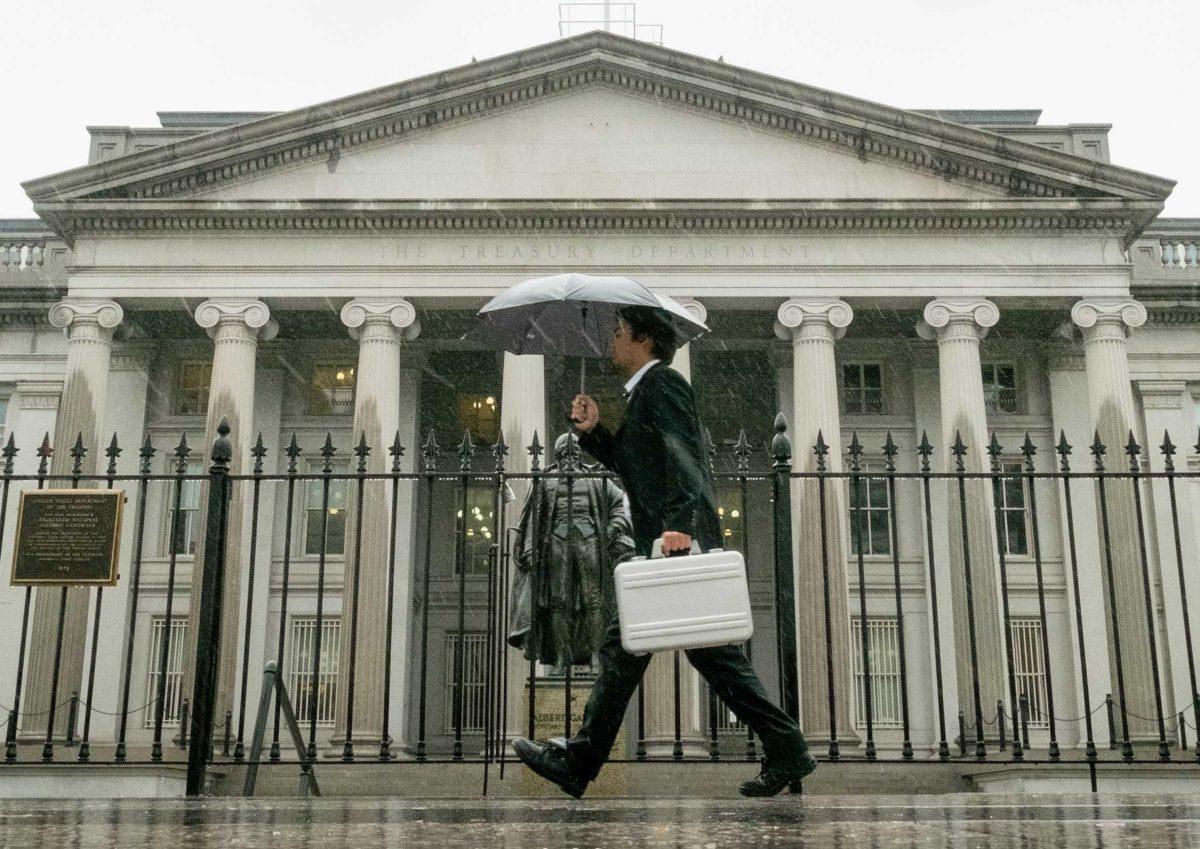During the past three years, the U.S. has experienced a sluggish recovery from the 2007-08 financial crisis and ensuing Great Recession.
For the most part, this is due to lawmakers’ ruthless pursuit of taking a butcher’s knife to the federal deficit. But their rationale for doing so is empirically baseless.
As a result, economic growth has remained modest at best, and we continue to suffer from persistently high unemployment.
Now that Congress has started bipartisan negotiations to reach a budget deal and avert another government shutdown in January, it appears policy makers are, once again, ginning up paranoia over the federal deficit.
Why? How has America seemingly fallen from the top of the economic food chain into a blithering pool of mediocrity?
Perhaps most obviously, lawmakers haven’t put forth any effort into taking action to help our economy.
Instead, almost all of the conversation in Washington was about the reportedly urgent issue of reducing the budget deficit.
Though there are some fiscally conservative Democrats, most of the talk about the dangers of deficits came from the mouths of Republicans.
Indeed, if you were to listen to politicians on Capitol Hill, especially those in the Republican Party, you might be led to believe the U.S. is plagued by an unsustainable debt crisis which threatens the future prosperity of our nation.
Not true at all.
Let’s take a brief look at the data.
In the 2014 fiscal year, which began at the start of October, the federal deficit is expected to come down to just 3.4 percent of Gross Domestic Product, according to the nonpartisan Congressional Budget Office.
Put in a broader context, that’s down from 10.1 percent of GDP in 2009, when the Great Recession was in full swing.
More importantly, next fiscal year, the deficit will fall even further to a mere 2.1 percent of the GDP.
What about President Barack Obama’s big spending that has allegedly blown up the national debt?
To be sure, at the height of the recession, in 2009-12, we were running close to $1 trillion in annual deficits.
But this makes sense. Unemployment peaked at 10 percent, so, as a result, you had millions of Americans suddenly not paying income taxes, and millions more qualifying for means-tested programs such as food stamps and Medicaid.
In other words, revenues fell and federal spending rose during this time. As you can see, we’ve made dramatic — perhaps too dramatic — progress in reducing our deficit since then.
Fitch, one of the three major credit rating agencies, issued a statement earlier this month pointing out the soundness of the fundamentals of the U.S. debt picture.
“The ‘AAA’ rating also reflects the halving of the federal budget deficit since 2010, which is now approaching a level consistent with debt stabilization,” said the company’s analysts.
Now that Congress has resumed bipartisan budget negotiations, what policy makers should really be doing is easing up on the deficit worries.
More specifically, politicians should try for a “Grand Bargain” deal that focuses on tax and spending policies that grow our economy.
Legislation, for example, that motivates consumers to spend, implements infrastructure projects to fix our crumbling bridges and roads and encourages businesses to invest in research and development projects that spur innovation.
But, of course, that’s not going to happen. According to a New York Times report, negotiators on both sides are focused on “more modest confidence building measures to replace the sequestration cuts in 2014.”
Basically that means more cuts to domestic programs to replace the existing reductions, which Republicans don’t like because they fall largely on the military.
With the deficit now under control, what could be the Republican Party’s justification for cutting spending?
I’m sure however they spin the issue, the conservative party’s rationale for slashing spending will be just as laughable and bogus as the rest.
Jay Meyers is a 20-year-old economics junior from Shreveport.
Head to Head: Empirical grounds for deficit paranoia is baseless
By Jay Meyers
October 23, 2013
In this Thursday, Oct. 10, 2013 photo, a pedestrian walks past the U.S. Treasury Building in Washington on a rainy day. The national debt actually reached the limit in May 2013. Since then, Treasury Secretary Jacob Lew has made accounting moves to continue financing the government without further borrowing. But Lew says those measures will be exhausted by Thursday, Oct. 17, 2013. The government will then have to pay its bills from its cash on hand — an estimated $30 billion — and tax revenue. (AP Photo/J. David Ake)





